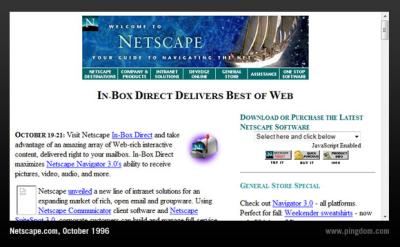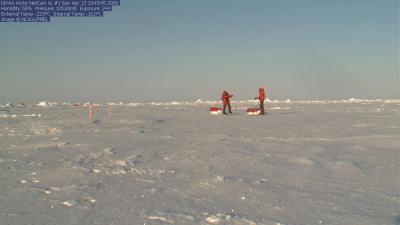Topic: WEB - on September 20, 2008 at 12:46:00 PM CEST
Conservative commentator Bill O'Reilly's website hacked
Two days after someone broke into the email account of vice presidential candidate Sarah Palin, unknown intruders have hacked the website of conservative commentator Bill O'Reilly and posted personal details of more than 200 of its subscribers.
The breach into BillOreilly.com came as retaliation for remarks O'Reilly made on Fox News condemning the attack on Palin's Yahoo email account, according to Wikileaks, a site that makes it easy for whistleblowers, hackers and anyone else to leak documents.
... Link (0 comments) ... Comment
Topic: WEB - on September 18, 2008 at 11:04:00 AM CEST
Turkey bans biologist Richard Dawkins' website - The Root of All Evil?
Turkish internet users have been blocked via a court order from accessing the site of prominent British biologist Richard Dawkins after complaints from lawyers for Islamic creationist author Adnan Oktar, the website of Turkish television station NTV reported on Wednesday.
... Link (0 comments) ... Comment
Topic: WEB - on September 17, 2008 at 11:11:00 AM CEST
How to measure a website's IQ?
The creator of the world wide web, Tim Berners-Lee, has made an odd request: for a kind of rating system to help people distinguish sites that can be trusted to tell the truth, and those that can't.
Berners-Lee was speaking at the launch of the World Wide Web Foundation, which aims to ensure that everyone in the world benefits as the web evolves.
In his speech he referred to the way fears that the LHC could destroy the world spread like wildfire online. As the BBC puts it, he explained that "there needed to be new systems that would give websites a label for trustworthiness once they had been proved reliable sources."
... Link (0 comments) ... Comment
Topic: WEB - on September 17, 2008 at 10:51:00 AM CEST
IsoHunt Lawsuit Sends Message to CRIA, RIAA, MPAA & More - Linking is Legal
The issue of copyright is a hot one at the moment, with sites as diverse as YouTube and The Pirate Bay both having to deal with the subject on a daily basis. The two sites may be very different, but are facing similar gray areas in the law.
The main difference between those two sites is that one will immediately comply with a takedown notice over an alleged copyright claim while the other doesn’t care.
... Link (0 comments) ... Comment
Topic: WEB - on September 17, 2008 at 10:48:00 AM CEST
CERN wins battle at Wikipedia, LHC history scrubbed
For months on the Large Hadron Collider (LHC) Wikipedia page a war has been raging between independent physicists and CERN over it's safety, but we have a winner! Wikipedia has watered down the LHC safety issues, banned some veteran members from editing the page, and scrubbed the page history so you can't read it, so to a new visitor clicking on the tab labeled history of the LHC page, it would look like the page was created 7 September, 2008, or whatever date it might be at the time of reading this article since it's continuously being scrubbed, when in reality it was created around 14 January 2004 according to the Internet Archive's Wayback Machine.
... Link (0 comments) ... Comment
Topic: WEB - on September 17, 2008 at 10:45:00 AM CEST
The Web back in 1996-1997
Back in 1996 the Web was starting to gain some serious momentum, but it was still just a few years old. Now in 2008, looking 12 years back into the past of the Web can be a both nostalgic and entertaining experience.
To give you some perspective, in 1996…
* Google.com didn’t exist yet.
* In January 1996 there were only 100,000 websites, compared to more than 160 million in 2008.
* The web browser of choice was Netscape Navigator, followed by Microsoft Internet Explorer as a distant second (Microsoft launched IE 3 in 1996).
* Most people used dial-up Internet connections with mighty speeds ranging from 28.8Kbps to 33.6Kbps. Highly modern 56Kbps modems would arrive in 1997.
* People had only recently started to switch from 640×480 to 800×600 screen resolutions.

... Link (0 comments) ... Comment
Topic: WEB - on September 15, 2008 at 10:44:00 AM CEST
U.N. agency eyes curbs on Internet anonymity
A United Nations agency is quietly drafting technical standards, proposed by the Chinese government, to define methods of tracing the original source of Internet communications and potentially curbing the ability of users to remain anonymous.
The U.S. National Security Agency is also participating in the "IP Traceback" drafting group, named Q6/17, which is meeting next week in Geneva to work on the traceback proposal. Members of Q6/17 have declined to release key documents, and meetings are closed to the public.
... Link (0 comments) ... Comment
Topic: WEB - on September 8, 2008 at 10:22:00 AM CEST
Louis Vuitton VS Fake for Real
The Fake for Real Memory Game – consisting of 60 cards that playfully visualize the classical theme of fake and real in our society – has temporarily been taken offline due to legal issues with a luxury leather luggage brand Louis Vuitton.
The Fake for Real memory game is sold in a stylish box, decorated with a pattern resembling the internationally renowned Louis Vuitton pattern, which was ironically mimicked using right-free ‘webdings’ fonts from MS Word.

... Link (0 comments) ... Comment
Topic: WEB - on September 8, 2008 at 10:06:00 AM CEST
Live from the North Pole!
Web Cam 3 is a fish eye view showing sky and cloud cover. Each reading by the radiometer triggers Web Cam 3 to take a photograph. Images are taken every 2 hours, allowing visual verification and comparison between sky conditions and radiometer measurements.

... Link (0 comments) ... Comment
Topic: WEB - on August 27, 2008 at 1:49:00 PM CEST
The Internet's Biggest Security Hole
The demonstration is only the latest attack to highlight fundamental security weaknesses in some of the internet's core protocols. Those protocols were largely developed in the 1970s with the assumption that every node on the then-nascent network would be trustworthy. The world was reminded of the quaintness of that assumption in July, when researcher Dan Kaminsky disclosed a serious vulnerability in the DNS system. Experts say the new demonstration targets a potentially larger weakness.
... Link (0 comments) ... Comment
Topic: WEB - on August 27, 2008 at 1:46:00 PM CEST
There are 905 days until Central Registry IPv4 address exhaustion - The End is Near, but is IPv6?
As of this blog posting, exactly 900 days remain until the end of the Internet, or at least the exhaustion of IPv4 registry allocations. And you don’t have to take my word for it, even the normally staid London Times and Fox News proclaimed, “Internet meltdown… The world is heading for a digital doomsday”.
Heady stuff.
Of course, IPv6 (or the new IPv4) was supposed to take care of all of this — billions of billions of new IP addresses, hardened security built in from the start, and an elegant new architecture to replace all of IPv4’s hacks.
... Link (0 comments) ... Comment
Topic: WEB - on August 22, 2008 at 10:44:00 AM CEST
Web browser to get 'privacy mode'
Microsoft is planning a "privacy mode" for the next release of its Internet Explorer (IE) web browser.
By clicking a button, users of IE8 will be able to limit how much information is recorded about where they go online and what they do.
LOL
... Link (0 comments) ... Comment










